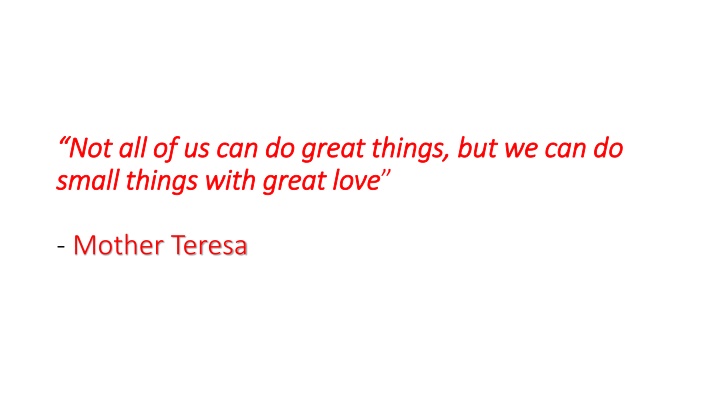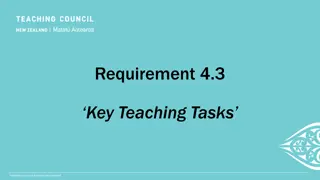Update on Tasks and Memberships for June 2016
This update covers a range of tasks accomplished in June 2016, including contracts sent, debt collection plans discussed, event coordination, membership statistics, and ongoing corporate member management.
Download Presentation

Please find below an Image/Link to download the presentation.
The content on the website is provided AS IS for your information and personal use only. It may not be sold, licensed, or shared on other websites without obtaining consent from the author.If you encounter any issues during the download, it is possible that the publisher has removed the file from their server.
You are allowed to download the files provided on this website for personal or commercial use, subject to the condition that they are used lawfully. All files are the property of their respective owners.
The content on the website is provided AS IS for your information and personal use only. It may not be sold, licensed, or shared on other websites without obtaining consent from the author.
E N D
Presentation Transcript
Not all of us can do great things, but we can do Not all of us can do great things, but we can do small things with great love small things with great love - Mother Teresa
INTRODUCTION TO SOCIAL WORK INTRODUCTION TO SOCIAL WORK UNIT-II Instructor: Abraham K Varghese Abraham K Varghese Assistant Professor & Head Department of Social Work The Bhopal School of Social Sciences (BSSS)
Influence of ancient Influence of ancient i ideas & actions to Social deas & actions to Social Work Profession Work Profession Shelter Homes/Asylums Volunteerism Inn/ Donation/ Protest/Movement Reformation Apostolic Missionary Charity Philanthropy Service without reward Altruism
Philosophy of Social Work Philosophy of Social Work Herbert Bison has described the philosophy of social work in detail in his book The philosophy of social work. He has narrated the philosophy of social work by following basic thoughts. Each individual by the very fact of his existence is of worth. Human suffering is undesirable and should be prevented or at least alleviated whenever possible. All human behavior is the result of interaction between the biological organization and its environment. Man does not 'naturally' act is rational manner. Man at birth is neither moral or immoral, social or antisocial. He is neutral and the behavior of individual is result of many forces.
There are both individual and common human needs. In addition to these needs every individual also has other needs and desires which are uniquely his. The social work believes that it is essential for individuals to have an opportunity to express these needs and desires in a satisfying and socially useful manner. There are important differences between individuals and they must be recognized and allowed. Social work places paramount importance to individualization. Human Motivator is complex and frequently obscure. It is the result of certain needs which initiates it, thus behaviors is the symptom of these causes. When needs are not fulfilled he feels frustrated and abnormal symptoms appear in his behavior. Family relationship is primary importance in the early development of individual. Having experience is an essential aspect of the learning process.
Social work rejects the doctrine of survival of the fittest instead it believes in the survival of the weakest. The rich powerful are not necessarily 'Fit' while the poor and weak are not necessarily Unfits . "Socialized individuals" is preferable to "rugged individualism" and social work believes in socialized individualism. A major responsibility for the welfare of its members rests with the community. All classes of persons in the community have an equal right to the social services there is a community responsibility to relieve adequate and without discrimination among the members of the community.
Public assistance should be based on needs. Social work believes that needs should be scientifically examined and after finding their validity assistance should be given. Organized labor makes positive contribution to community life and should be accepted as constructive rather than destructive force. Freedom and security are not mutually exclusive security and freedom is part of the same problem. Social work has functionally dualistic approach. The case work and social action are two district methodologies. Social work operates to assist individuals in adjusting to the institutional framework of society and also attempt to modify institutional framework itself in required areas through social action method.
The social work believes on the development of insight and/or environmental manipulation for the purpose of modifying individual s behavior. Social work services should be provided by professionally trained social worker by both public and private agencies. Social work accepts democracy as an important method and support to the attainment and maintenance of all civil rights. Evolutionary type 'reform is both possible and desirable in our society'. There is a need for social planning. Social work believes in the possibility of the intelligent direction of social changes in other words they recognize the need for and feasibility of social planning.
History of Social Work in West (UK & USA) History of Social Work in West (UK & USA) 1215: King John of England signs the Magna Carta, which establishes some human rights (for the privileged class). It is considered a forerunner of modern civil rights. 1531: The first State regulation of relief is found in a 1531 statue concerning the punishment of beggars and vagabonds. 1560: Churches provided hospitals, infirmaries and alms houses for the old and the sick in United Kingdom. 1601: The Elizabethan poor law was enacted, basically it was collection of laws meant to formalized earlier practices of poor relief. The law authorized the raising of taxes to pay for services to those who were poor, needy and had no family support. It classified poor s in three categories, the impotent poor, the able bodied poor and the idle poor.
1624: Based on the contribution of disabled soldiers and sailors Virginia colony passed the legislation recognizing their problems and needs. 1642: Based on the Elizabethan Poor Law the Plymouth colony also approved a poor law that directs that relief cases must be discussed at meetings held in towns. 1650: The protestant work ethics , emphasizing self discipline, frugality and hardship becomes prominent, justifying those who adopted its views to look down upon people who are unemployed or dependent on others. 1657: Scots Charitable Society, The first American society founded in Boston. It represents the beginning of voluntary societies to meet the need of poor and disadvantaged. 1776: The United States declaration of independence is signed promoting freedom for everyone but not for the slaves.
1812: The First American textbook on psychiatry written by Dr. Benjamin Rugh is published. 1813: The first labor legislation was enacted which directs factory owner to teach reading, writing and arithmetic to their child laborers. 1834: The poor law amendment act of 1834 divided the poor in England and Wales into two groups: i.e. the deserving poor and the undeserving poor. 1837: The First State institution for blind people is established in Ohio. 1843: The New York Association for improving the condition of the poor is established. 1844: The first Young Men s Christian Association (YMCA) was organized by Drapery Clerk George in London. 1848: The first Minimum Wages law of United States was enacted in Pennsylvania.
1877: The first Charity Organization Society was founded in Buffalo. The society operates on four principles Detailed investigation of applicants A central system of registration to avoid duplication. Cooperation between the various relief agencies. Use of the volunteers in the form of Friendly Visitors . 1886: The first settlement house in the United States named the Neighborhood Guild was established with a objective of eliminating the distance between socio economic classes by locating housing for the poor in working class neighborhood. 1898: The first Social Work training institute was established by the New York Charity Organization Society, which in 1904 becomes the New York School of Philanthropy.
1900: The term Social Workers was coined by Simon Pattern. 1900: Abraham Flexner issued a report declaring that social work is not yet a profession because it lacks a written body of knowledge and educationally communicable techniques. 1917: The first text book on Social Case Work named Social Diagnosis written by Marry Richmond known to be the first important contribution in the social work body of knowledge. 1933: US president Franklin D. Roosevelt proclaims a New Deal for Americans establishing major social development program responding to poverty and unemployment. 1950: The social security Act of 1935 amended to include children and relatives with whom needy children are living, and to aid permanently and totally disabled people. 1952: The Council on Social Work Education was established. 1955: The National Associations of social workers was established.
1960: The National Associations of social workers adopts its first code of ethics. 1964: US President Lyndon B. Johnson establishes the Great Society programs and made racial discrimination in public places illegal. 1965: More Great Society programs, providing for medical case, the needs of older Americans, and children education are established. 1990: The American with Disabilities Act makes it illegal to discriminate against disabled people. 1990: The Ryan white comprehensive AIDS Resource Emergency Act provides funding for prevention, Intervention, treatment and commends planning in relation the HIV/AIDS. 1996: US president Clinton signs into law the personal responsibility and work opportunity, Reconciliation Act, restricting or eliminating many entitlement programs and replacing them with more temporary aid designed to promote independence.
EVOLUTION/HISTORY EVOLUTION/HISTORY OF SOCIAL WORK IN INDIA OF SOCIAL WORK IN INDIA Healthy ethical and spiritual traditions were part of the Indian tradition since early Vedic period. The seeds of human development were served since the origin of Indian society. The Vedic Period provides life s highest order, which is found in the Indian scriptures entitled Veda Yazurveda , Atharvavada . It emphasized that the religions hymns and music, sacrifices and knowledge are the soul of human life. The learning of Veda was called shruti; which was memorizing through listening. One of the finest skills of case work is listening which was practiced in Pathshala mode of education where the Guru used to recite and disciples practiced the listening and oratory skills and learns the lessons. Charities in Vedic era were considered as morality. Helping the needy and beggar were praised as moral behavior. i.e. Regveda, Samaveda ,
We have many examples in Indian literature on Dana (charity) we have example of Ram Rajya of Rama as a example of welfare state , Danveer Karna , as Donor and Philanthropist Raja Harishchandra as Satyavadi Raja Bhoj as an advocate whose justice mechanism was based on human values. All these characters can be quoted as an example while we study the roots of social work in India. In the early vedic era women were enjoying equal positions. There is a reference of Women Rishis like Apala , Maitreyi etc. Which indicates the status of women in the ancient India. The Asharama systems of ancient time delegated duties associated with relationship to provide discipline in human life. The four age- based life stages are: Brahmacharya (student), Grihastha (householder), Vanaprastha (retired) and Sannyasa (renunciation).
The great emperor Ashoka adopted Buddhism and devoted his life to humanistic values after conquering all countries of that time. The Eight fold Paths of Buddhism finds its relevance in social work principles that is peace, dignity and right to livelihood, acceptance etc. Charaka in the regime of Krishna developed indigenous medical treatment of Bhaisajyagraha a medical store and kautilya mentioned about the veterinary surgeons that were the in charge of cattle s. There was a provision of Samsthudyaska (Controller of establishment who looked after public health) The ancient books such as Manu Smriti by Manu, Aarthshastitra by Kautilya, Mahabharata by Vedvyas and Ramcharit Manas by Tulsidas mentioned the political institutions as examples of scientific governance. known as :
Welfare state was an ideal feature of ancient India as the king was custodian of law and trustee of public property emerged from Dharma. We can trace the present time popular concept of Corporate Social Responsibilities through it. The concept of welfare state has been beautifully summarized by Apastamba . According to this text the state had to provide food clothing, shelter and medical treatment to people. No one in the Kingdom shall suffer from hunger, sickness, and cold or heat either through want or otherwise, royal guest house at the capital was to be made open and accessible to all . The issue of morality and ethics lies in the story of Panchtantra and the issue of animal protection and their dignity finds space in Hitopadesha
Mughal emperor Akabar acted as social reformer and prohibited child marriage introduced law against slavery and alcoholism. He founded a new cultural order Called Din-e-ilahi . (Divine faith)- A collection of moral from all religions. We find reference of high orders practiced by Shivaji, Maharana Pratap, Laxmi Bai. Who Fought for people and Nation. No example of social welfare found during the early days of British rule in India. As they were the invaders and intruders for the Indian society. Whatever glimpses of welfare we get in the history during that period was insufficient and inadequate. Due to the regular occurrence of famine Colonial state appointed famine commission in 1880. Further Famine code was developed in 1883.By the charter act of 1813 the company administration had accept the responsibility of education in India.
In 1835 the cleverer general William Bentinck had decided to impart western education in India on the recommendation of Mr.Mcaley. In 1844 English become official language and it was declared those people having the knowledge of English would be preferred for public employment. The colonial state Commissioners in 1880 in the five British provinces. The plague commission was also appointed in 1896. In the year 1905 Gopal Krishna Gokhle established Servants of India Society . It was first attempt by an Indian in the form of organized social work. The beginning of the twentieth century there was an adequate public opinion against the colonization of Britishers in India, and the role of Britain in the first and the second world war made it difficult for the rulers to invest in the interest of the general public in India. appointed the Sanitation
The only significant contribution during that period was from Christian missionaries who were came here during that period and gave different outlook to religion by establishing schools, colleges, hospitals and other institutions of social importance. In this regard the first school of social work in India was also established by the help of Christian missionary named Clifford Manshardt in the year 1936 named Sir Dorabji Tata Graduate School of Social Work now popularly known as TISS. In the mean time social reformers like Raja Ram Mohan Roy, Ishwar Chandra Vidyasagar, Mahadev Govind Ranade, Ram Krishan Paramhans, Swami Vivekananda also created an atmosphere which made British government to pass important social legislation.
Due to industrial expansion many Acts were passed in India such as the Apprentice Act 1850, The Fatal Accident Act 1853, and The Merchant Shipping Act 1859, the Reformatory School Act of 1870, First Factory Act 1881. Series of Labor legislations were also passed by government such as factory commission was appointed in 1890; Indian Factory Act was passed in 1891. The Factory Act was amended in 1912, 1923 and 1934. The Workmen s Compensation Act of 1923 (Now Employees Compensation Act), Payment of wages Act. 1936, Bombay Industrial Disputes Act of 1938. Some social legislations were also enacted like Children Act in 1920, Control Prevention and Treatment of Beggary Act was passed in 1945, Abolition of Sati in 1829, the Abolition of slavery in 1843, the Abolition of female Infanticide and Human Sacrifice in 1802 and Widow Remarriage Act in 1856.
After independence several initiatives has been taken by the Government for the social progress of the weaker society. The factory Act 1948, Plantation Labour Act 1951, The Mines Act 1952, embodying the Directive Principles of State Policy in the Constitution, Maternity Benefit Act 1961, The Payment of Bonus Act 1965, The Contract Labour (prohibition and Regular) Act 1970, Payment of Gratuity Act 1972, Equal Remuneration Act 1972, Protection of Civil Rights Act 1955 amended in 1976, Scheduled Castes and Scheduled Tribes (prevention of Atrocities) Act 1989, Nilokhedi projects in 1948 as the refugee rehabilitation project, in 1952 Firka development scheme in Madras province, Etowah Pilot project was launched 1948 for rural development in the state of Uttar Pradesh. The national extension service was launched in 1953 and the 73rd, 74th constitutional Amendment in 1992-93.
Social Work & Other Social Sciences Social Work & Other Social Sciences What is a Social Science? Social science, any discipline or branch of science that deals with human behavior in its social and cultural aspects. Social Science, broadly speaking, provides an understanding of how the world works using social and behavioral explanations.
What is Social Work? Social work has been called a helping profession, a problem solving profession or an enabling profession. The social work profession , promotes social change, problem-solving in human relationships, and the empowerment and liberation of people to enhance wellbeing.
Relation of SW with other SC Disciplines Relation of SW with other SC Disciplines Social work in the early period of growth depended to a large extent on knowledge derived from other disciplines like; Sociology psychology Economics Law & Jurisprudence Political science & Public Administration Social Anthropology Medical Science
Sociology and Social Work Sociology and Social Work Latin word socius means companion or associate Logos a Greek word for study . Sociology is the study of association, group, society and social interaction. It is concerned with the study of human social life. Sociology and social work are two related fields and both deal with the relationships of human beings to their social environments. Both fields are concerned with social problems, social structure and how individuals respond to and live within cultural and structural constraints.
In Sociology the approach to society is theoretical and theory building is its major concern. Social work on the other hand has to be practical and deal with problems. Delinquency, inequality, deviation and social exclusion as well as childhood, family and care are other examples of themes addressed by both disciplines. The sociologist is particularly concerned about the how, when, and why people behave as they do in association with others. The social worker is concerned about helping these same people to solve the problems they have and to improve social functioning.
Social Work & Psychology Social Work & Psychology What is Psychology? Psychology is concerned with behaviour and mental processes and how they are affected by an organism's physical state, mental state, and external environment Psychology is the systematic study of behaviour: how we learn, think and interact with others, what motivates our actions, and the role that personality and individual difference play in behaviour.
Psychology and Social Work Psychology and Social Work Social Case work is primarily concerned with the psycho- social problems of the individuals. Psychology helps social workers in understanding the psychological aspects of the problems especially while providing support services to clients with emotional, mental and/or behavioral issues. Theoretical perspectives from psychology have been added to the field of social work which enable a social worker both to understand and to practice. Social Workers Counsel clients in individual or group sessions to assist them in dealing with substance abuse, mental or physical illness, poverty, unemployment or physical abuse.
Social Work & Economics Social Work & Economics What is Economics? Economics is the study of how individuals and societies choose to use the scarce resources that nature and previous generations have provided. Scarcity -All economic questions arise because we are unable to satisfy all our wants - Our inability to satisfy all our wants is called Scarcity Scarcity a basic human dilemma Limited resources vs. unlimited wants
Definitions of Economics Mankiw s definition Economics is the study of how society manages its scarce resources Hedrick s definition is how society chooses to allocate its scarce resources among competing demands to improve human welfare The state of our physical environment, the level of material well-being, and the nature and number of jobs are all products of the economic system. Economic Issues Unemployment Inflation Taxation Poverty Health Care Education
Both are concerned with the well being of individuals in the society. Economics provide the solution to our economic problems. Social work also tends to study; -how man satisfies his wants? -what problems he faces? -what resources he possesses to solve them?
Social Work & Law/ Jurisprudence Social Work & Law/ Jurisprudence Jurisprudence is a combination of two words 'juris' which means 'law' and 'prudence' which means 'knowledge' or 'skill'. It is the study, knowledge, skill and theory of law. Law are rules of human conduct by political authority. Jurisprudence is a social science as it is the study of law and its enactment and the law is for human being and society. Social workers often require an understanding of the law in a variety of emerging areas. - Family issues( divorce, custody of children etc) - Child Welfare( child labour) - Crime and Punishment( Rehabilitation, Juvenile justice, Probation)
Social Work & Political Science Social Work & Political Science In a general sense Political Science is the science of the state. It deals with association of human beings in the form of political units and the government. Political Science explains about the nature and function of the state, its importance, organization, administration, principles, policies and its laws and legislations for the wellbeing of the society. It also explains the suitability of policies, plans, welfare schemes and their implementation under the public domain. The state has the power to control all types of economic, moral, cultural and religious relations and mutual interaction between individuals, groups and communities. There are number of problems which can effectively be solved through enactment of legislations.
Social work takes the responsibility to deal with the problems of individuals groups and community. In this task, social work tries to study the nature of association and interactions of such individuals, groups and communities for inclusive growth and development. Moreover, in the welfare state like India where the government takes the responsibility of ensuring welfare of all the sections of the population, social work has to seriously look into the policies, schemes and programs link them up to the needs of the communities for the betterment of the people. In this sense, a social worker needs to have the knowledge about all these for the better performance of his duties. Thus, looking into such requirement of the knowledge of Political science in social work practice, some political science like other science has been incorporated to the body of knowledge of social work.
Social Work & Public Administration Social Work & Public Administration According to Luther Gulick public administration is that part of the science of administration which has to do with the government and thus concerns itself primarily with the executive branch where the government is done . Public administration is also a discipline that studies the functioning of this part of the government. Public administration has many branches administrative theory, financial administration, welfare administration, administrative law and personnel administration. Social work is concerned with welfare administration as it deals with the provision of social welfare services and correctional services
The American Council of Social Work education has defined administration as the process of transforming community resources into a programme of community service, in accordance with the goals, policies and standards which have been agreed by those involved in the enterprise. It is creative in the sense that it structures roles and relationships in such a way as to alter and enhance the total product. It involves the problem solving process of study, diagnosis and treatment or action and evaluation of results. The scope of social welfare administration is (1) the analysis of social problem and determining the administrative response to the problem (2) the planning and execution of social services (3) organizing social security programmes (4) administering social welfare agencies (5) formulation of social policies.
Social Work & S. Anthropology Social Work & S. Anthropology Social anthropology is that branch of sociological studies which mainly devotes itself to the primitive human being and the primitive society. It studies the activities of human beings that bring satisfaction to psycho-physical needs. It basically studies the culture of society which is less changeable. The folkways, mores, traditions and values of the primitive men are different than that of modern people. Their nature and factors of problems also are different from that of modern societies.
There are number of schools of social work in India where subjects of primitive societies and tribal welfare are taught as fulltime and specialized course. Social work students receive information regarding tribal organizations, their values, beliefs, and customs and on the basis of this information they try to understand the needs and problems of the tribal people. Then an appropriate action plan is prepared for the solution of their problems. This part of social work knowledge has been borrowed from the study of social anthropology.
Social Work & Medical Science Social Work & Medical Science The importance of social work in healthcare is often underestimated even though social work can provide knowledge and skills that healthcare organizations and institutions could use to help their patients. knowledge about the various diseases, their causes, diagnosis and cure are necessary for the social worker Patients with health problems often experience personality and social environment difficulties while trying to manage their disease, especially chronic diseases.
This work includes helping individual, groups, family & communities to find strategies to cope with the difficulties of living with a chronic disease & disorders Social workers should be aware of the social implication of these illnesses. The impact on the family, the resources available to the client, governmental and nongovernmental resources available to support the client are areas of concern for the social worker. The overall goal of social work in healthcare is to prevent and reduce negative social and psychosocial consequences of diseases and to encourage and teach these patients how to use their own resources.
Social Work & Psychiatry Social Work & Psychiatry Psychiatry is the diagnosis and treatment of psychological disorders. Psychiatric social workers are specially trained social workers skilled in interviewing, in assembling family histories of their clients and assessing social factors involved in psychological disorders. Social work and psychiatry have close relation, as one very important area of intervention in social work is the mental health field. Social work gained a significant amount of information from psychiatry types of mental illness, their classification, causes, effects and treatment methods.
Social workers on the other hand deal with social aspects of the illness. They mobilize resources within the community to support the patient. It may be a job from the recovered person or getting funds for his livelihood. Social worker will also help his family cope with the difficult situation they find themselves in. Social worker views the mentally as a total person rather than a patient. The cooperation of social work, psychiatrist and other health professionals are needed for the holistic treatment of the patients.
Social Work & Social Work & History History studies the past events, the factors that influenced it and what circumstances brought about the events that happened In simple terms, history is the record of past events. History has been able to discover underlying forces that have influenced those events. History is divided into the following specializations political history, social history, and economic history, history of ideas and world history. The purpose of history is to know the past so that the present is better understood. History
History of profession is to be studied so that the current status of the profession is known. New methods in historiography have enabled us to go beyond the approaches that have been seen earlier. This has allowed new light to be thrown on some of the problems that the profession is facing today. For example the feminist viewpoint of the history of social work, the alleged low status of social work profession lies in its origin itself. The pioneers in the profession were white women who were themselves marginalized by society which was transferred to their profession. the role of social work especially in the west in linked to the fortunes of the welfare state. The welfare state is today facing unfrequented crises due to the rise of neo-liberalism which advocates a minimal state. To fight this political tendency social work has often used history to explain the growth of the welfare state and present problems it needs to address.
Social Work & Philosophy/Ethics Social Work & Philosophy/Ethics Social work is a value-based profession that deals with the life of human beings. Hence its relationship with philosophy especially moral philosophy is very important. Moral philosophy also called ethics, aims at determining what ought to be in any given situation. In simple words it helps in distinguishing right from wrong. The study of Ethics can be divided into three (i) Metaethics that deals with the ultimate questions of human life. What can be called good? What should be the basis of all decisions? (ii) Normative ethics deals with how Meta ethics can be formed into principles that can govern the social life. (iii) Applied ethics is applying this knowledge to everyday life situation.
Social workers work with human beings and with human relationships. Often social workers are confronted with decisions that have to be ethically sound. The end cannot justify the means. Ethics provides the basis for the right action towards the client. Large sections are increasingly becoming aware of their rights and value systems are constantly changing. Different perspectives and often contradicting are available on different issues. Ethical problems and dilemmas in professional social worker exist in three forms (i) issues related to individual welfare and rights (ii) issues around public welfare (iii) Issues related to inequality and structural oppression. Social work s professional bodies formulate ethics for its members. It regulates the relationship between the professional and the client, professional and fellow professionals, professional and the society. Social work will increasingly depend on philosophy and ethics to answer new questions and resolve dilemmas arising in the profession due to new issues like same sex marriage, euthanasia, cloning and stem cell use.
Not Not all of us can do great things, but we can do all of us can do great things, but we can do small things with great small things with great love love - Mother Teresa There was and will be only one Mother Teresa. But can t all social workers choose to love just as greatly? Thank You!























